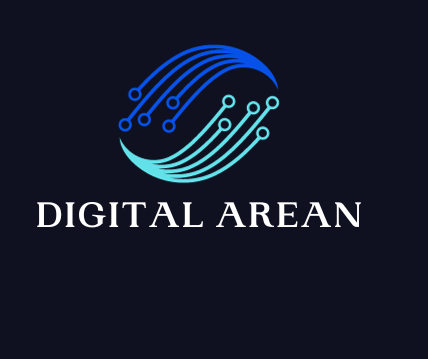Top 10 Reasons Why Digital Marketing is Important

In the ever-evolving landscape of business,
where the digital realm plays a central role, the importance of digital marketing cannot be overstated.
Traditional marketing methods are giving way to more dynamic and targeted strategies, as businesses strive to connect with their audience in meaningful ways.
Here, we delve into the top 10 reasons why digital marketing is not just advantageous but imperative for the growth and success of your business.
What is Digital Marketing ?
Digital marketing encompasses a broad range of online strategies and techniques designed to promote products, services, or brands in the digital realm.
It leverages the power of the internet and electronic devices to reach and engage with a target audience.
Unlike traditional marketing, which relies on offline channels like print or TV, digital marketing harnesses the vast capabilities of the online world to connect businesses with consumers in more dynamic and interactive ways.
Key Components of Digital Marketing:
Search Engine Optimization (SEO):
Enhances a website’s visibility on search engines, driving organic traffic by optimizing content and technical aspects.
Content Marketing:
Involves creating and distributing valuable, relevant content to attract and engage a specific audience, with the goal of driving profitable customer action.
Social Media Marketing:
Utilizes social media platforms like Facebook, Instagram, Twitter, and LinkedIn to promote products or services, build brand awareness, and engage with the audience.
Email Marketing:
Involves sending targeted messages to a group of people through email, often used for promotions, newsletters, and relationship-building.
Pay-Per-Click (PPC):
Advertisers pay a fee each time their ad is clicked, providing a way to buy visits to a website rather than earning them organically.
Affiliate Marketing:
Businesses reward affiliates for each customer or visitor brought about by the affiliate’s marketing efforts.
Influencer Marketing:
Involves collaborating with influential individuals on social media to promote products or services to their followers.
Online PR (Public Relations):
Focuses on managing a brand’s online reputation through various digital channels.
Analytics and Data Analysis:
Utilizes tools to measure the performance of digital marketing campaigns, providing insights for optimization.
The Importance of Digital Marketing for Business Success

In the fast-paced and ever-evolving landscape of the business world, digital marketing has emerged as a critical catalyst for success.
Here are several compelling reasons why digital marketing is essential for businesses today.
Global Reach:
Digital marketing enables businesses to transcend geographical limitations. Through online channels, companies can reach a global audience, expanding their market far beyond local boundaries.
Cost-Effectiveness:
Compared to traditional marketing methods, digital marketing often proves to be more cost-effective.
Online platforms provide a range of budget-friendly options, allowing businesses of all sizes to allocate resources efficiently.
Targeted Advertising:
One of the key advantages of digital marketing is the ability to precisely target specific demographics, interests, and online behaviors.
This ensures that marketing efforts are directed towards the most relevant audience, optimizing the impact of campaigns.
Real-Time Analytics:
Digital marketing provides businesses with access to real-time analytics and data. This allows for quick and informed decision-making, as marketers can monitor the performance of campaigns and adjust strategies on the fly.
Increased Engagement:
Interactivity lies at the heart of digital marketing. Whether through social media, email campaigns, or other online strategies, businesses can engage with their audience in meaningful ways, fostering stronger relationships and brand loyalty.
24/7 Accessibility:
Unlike traditional marketing channels with specific operating hours, digital marketing operates around the clock.
This ensures that a business’s online presence is accessible at any time, catering to the needs of a global and diverse audience.
Better ROI Measurement:
Digital marketing provides sophisticated tools for measuring return on investment (ROI).
Businesses can track the performance of their campaigns, understand customer behavior, and make data-driven decisions to maximize the effectiveness of their marketing budget.
Social Media Influence:
Social media platforms have become powerful tools for brand promotion and customer interaction.
Digital marketing leverages the influence of social media, allowing businesses to connect with their audience directly and even tap into the potential of viral marketing.
Mobile Optimization:
With the increasing use of smartphones, optimizing digital marketing strategies for mobile devices is crucial.
Mobile-friendly websites, apps, and targeted mobile advertising ensure that businesses can reach consumers on the devices they use most frequently.
Adaptability and Scalability:
Digital marketing is inherently adaptable. It allows businesses to quickly adapt to changing market conditions, emerging trends, and consumer preferences.
Additionally, digital strategies are scalable, making it easy for businesses to adjust the scale of their campaigns based on goals and budgets.
Conclusion:
digital era demands a strategic shift in how businesses approach their marketing efforts.
The aforementioned reasons underscore the pivotal role that digital marketing plays in modern business success.
From expanding global reach to cost-effectiveness and real-time analytics, embracing digital marketing isn’t just a choice—it’s a business imperative.
digital marketing is not just a trend; it’s a fundamental aspect of modern business strategy.
Businesses that harness the power of digital marketing gain a competitive edge, connecting with their audience in meaningful ways, driving engagement, and ultimately contributing to long-term success in the dynamic digital landscape.
FAQ:
Q1: Is digital marketing only for big businesses?
A1: No, digital marketing is for businesses of all sizes. It offers a level playing field, allowing smaller enterprises to compete effectively with larger counterparts.
Q2: How can I measure the success of my digital marketing campaigns?
A2: Success can be measured through various metrics such as website traffic, conversion rates, social media engagement, and return on investment (ROI). Analytical tools and platforms provide valuable insights for evaluation.
Q3: Are there specific industries where digital marketing is more effective?
A3: Digital marketing can be effective across various industries. The key is to tailor strategies to the specific needs and preferences of the target audience within each industry.

